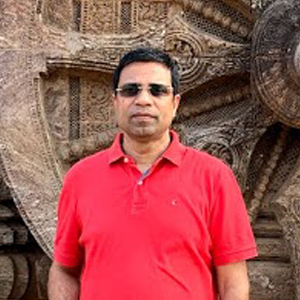Course Overview
This course provides an introduction to the fundamental concepts of Virtual Reality (VR), exploring the rapidly evolving field of Extended Reality (XR) and its applications across various industries. Students will investigate current trends in immersive technology, analyze the benefits of XR, and consider its potential future impact. Through hands-on experience, students will gain technical skills for developing VR content and will create their own VR prototype. By the end of the course, students will have a good understanding of XR technologies, with a focus on the design and implementation of effective, engaging VR applications.
All students who successfully complete the course will receive a Certificate of Completion and have the opportunity to request a Syracuse University noncredit transcript.
Learning Objectives
- Examine how XR technologies are reshaping industries, assess their advantages, and explore the evolving landscape of XR.
- Describe how immersive XR technology is applied in fields such as gaming, entertainment, education, healthcare, and retail.
- Conceptualize, design, and build a functional VR application, applying technical skills to create an immersive experience.
- Use visual and interaction design principles to ensure user-friendly, engaging, and immersive VR experiences.
Course Information
Course Prefix and Number: SCN 208
Format: Online
Eligibility: Students must be of rising high school sophomore* junior, or senior status – or a 2025 high school graduate.
*Rising sophomores are only eligible for the noncredit version of this course.
Credit: Noncredit
Grading: Pass/Fail
Cost: $1,995
Program Information
Summer College – Online: Explore college life before stepping foot on campus! High school students can enroll in a college-level course, pursue their academic interests, and meet likeminded students in daily virtual events and activities.
Course Dates and Details
| Program | Course Dates | Synchronous Class Time (Eastern Time) | Credit/Noncredit |
|---|---|---|---|
| Summer College – Online | 3-Week Online Session I: Monday, July 7 – Friday, July 25, 2025 | Wednesdays; 9 a.m. – Noon | Noncredit |
To see if this course is ‘open,’ refer to the full course catalog.
Course Requirements
Required Supplies
Please know that any supply purchases are not included in the overall tuition fee. Students will need to budget for additional course supplies, textbooks, supply kits, etc.
Students need a computer with Internet access. The computer should have a camera, audio, and video capabilities for Zoom sessions. Students should have basic computer literacy. Students will need certain software such as Figma, Unity, etc.
Typical Day
Tentative Schedule
A typical class day in the Virtual Reality (VR) course would involve a mix of lectures, hands-on technical practice, design exercises, and collaborative project work. Here’s a breakdown of what a class session might look like:
- The instructor provides a focused lecture on a VR concept, such as spatial audio, virtual interaction methods, or designing for immersion.
- Real-world examples of VR applications in fields like gaming, education, or healthcare are discussed to illustrate how VR technologies solve industry challenges.
- The instructor demonstrates key tools or platforms used for VR development, such as Unity with VR extensions, or device-specific SDKs.
- Students follow along on their devices, experimenting with core functionalities (e.g., creating VR environments or adding interactions).
- Students work independently or in pairs to build a VR environment or prototype, focusing on the day’s concept—like creating a virtual space or implementing user interactions.
- Selected students or groups present their VR prototypes, sharing their design process and choices.
When class is over, and on weekends, students can look forward to various Summer College virtual activities to meet and connect with other students across the world. Check out our Virtual Campus Experience page for more information!
Faculty Bios
Rupananda (Rupa) Misra

I am an Associate Teaching Professor in the Master of Business and Science (MBS) program at Rutgers University, where I teach and oversee the User Experience Design and Product Design concentrations. I hold a master’s degree in communications/journalism from Fort Hays State University and a doctoral degree in Education from Teachers College, Columbia University. Additionally, I completed a post-doctoral National Library of Medicine (NIH) fellowship in Health Informatics at Columbia University.
With over 25 years of teaching experience and more than 12 years of research consulting with doctoral students at Columbia, I am committed to mentoring students through complex projects, helping them build the confidence and skills needed to address real-world challenges.
In my courses, I emphasize practical, hands-on experiences where students tackle real-world design challenges. They conduct primary research to understand user behaviors, motivations, and needs, employing methods such as field visits, ethnography, and surveys. Their findings culminate in both written reports and interactive prototypes, providing a comprehensive learning experience in user-centered design.
My passion lies in developing innovative design solutions for complex health problems, with a specific focus on technology-mediated information interventions that support effective decision-making and behavior change. I bring extensive expertise in web/mobile technologies, databases, human-computer interaction, and design thinking.
In addition to publishing a book, eight peer-reviewed papers (including three book chapters), and presenting at eight conferences, I’ve had the privilege of teaching in diverse settings, further refining my approach to impactful, inclusive education.
